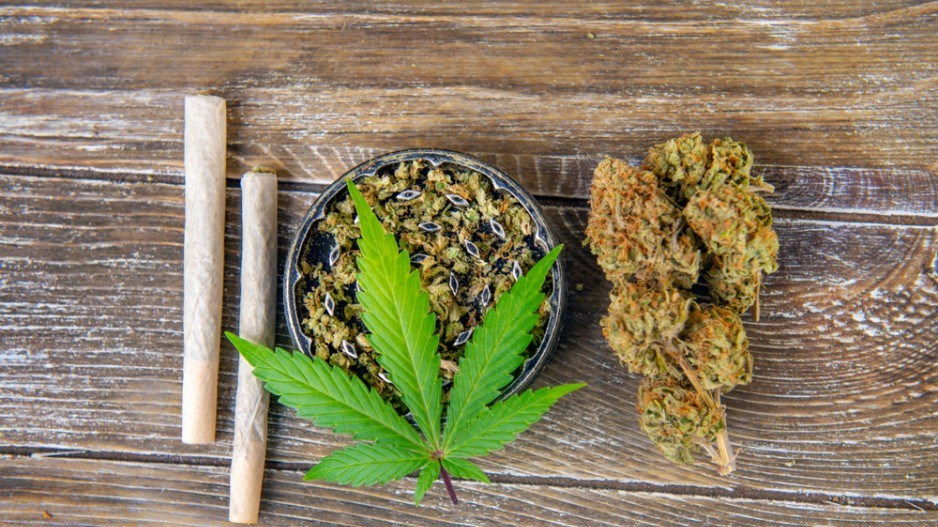This month, Canada will observe six months since marijuana was legalized. The culmination of a Justin Trudeau campaign promise made in 2015 took longer than originally anticipated and has endured its share of setbacks.
At this point, there is a minuscule number of stand-alone marijuana stores operating across the country and most legal sales are being conducted through the mail. British Columbia’s government calculated it would garner $200 million in cannabis tax revenue over the first three years after legalization, but the figure was recently revised to “just” $68 million. The slow process to open stores is partly to blame for this alteration.
I first had the chance to ask Canadians about marijuana legalization in May 2008. At the time, 53% of British Columbians wanted to make cannabis readily available. As the debate over legalization continued, some Conservative Party of Canada supporters expressed dismay at the thought of legal marijuana, but also welcomed the tax revenue that would be associated with it. For these voters, a perceived fiscal advantage was more important than social values.
Earlier this month, Research Co. asked British Columbians about the current state of affairs. More than three in five residents (63%) agree with marijuana being legal in Canada, while three in 10 (29%) are not in favour of the federal government’s course of action.
The highest level of support for legal marijuana is observed in northern B.C. and Vancouver Island (72% in each region), as well as among residents aged 18 to 34 (70%). In contrast, opposition climbs slightly among those aged 55 and over (35%), but not nearly enough to suggest that a “generational war” will be waged over cannabis.
Some of the early criticism toward marijuana legalization proponents focused on the idea that it would be difficult to explain the ramifications of this decision to children. The federal government has recently dealt with this by running radio advertisements where parents are urged to have “the talk” about marijuana with their kids.
Legalization did not bring with it a massive amount of curious new users. While just over half of British Columbians (51%) say they have never consumed marijuana in Canada, 43% acknowledge trying cannabis before it became legal in the country. This leaves just 6% of British Columbians who used marijuana for the first time after legalization, including 10% of millennials.
The results are similar to what was observed in Washington state after its own legalization in 2016, when just 5% of its residents said they tried cannabis after being officially authorized to do so.
Every Canadian province sets up the rules under which marijuana is sold. British Columbians agree with what Victoria has mandated, with sizable proportions agreeing with the legal age of 19 for buying, selling or consuming cannabis (79%), limiting the venues and areas where a person can smoke it (also 79%) and authorizing adults to grow up to four plants in their household under certain conditions (67%).
The most contentious measure – albeit with the agreement of 57% of British Columbians – is establishing the BC Liquor Distribution Branch as the wholesale distributor of non-medical marijuana in the province. While some users hoped to be able to acquire marijuana in more places – such as a pharmacy or liquor store – the stand-alone model is here to stay.
At a time when the province struggles to deal with a tainted illicit drug supply, the level of support for legalizing other drugs is negligible at best. The survey shows that 15% of British Columbians – or fewer – believe that ecstasy, powder cocaine, crack cocaine, heroin, crystal meth and fentanyl should also be acquired legally by whoever wants to use them.
We have learned a few things in the first six months of legal cannabis. First of all, the ability to acquire marijuana legally did not make the substance more enticing for British Columbians who had not used it. Accessing marijuana was not particularly difficult before October 2018, and many British Columbians remain uninterested in trying it.
It is also important to note that the presence of a formerly controlled substance in the hands of residents has not led many British Columbians to conclude that every illegal drug should be legalized.
Finally, British Columbians who used marijuana in “illegal” and “semi-legal” terms continue to enjoy it, even if the stores have taken longer than expected to open. Support for the framework brought in by the provincial government is strong, which is one of the reasons we see residents who have never tried cannabis approving of legalization. •
Mario Canseco is president of Research Co.
Results are based on an online study conducted from April 4 to April 7, 2019, among 800 adults in British Columbia. The margin of error – which measures sample variability – is plus or minus 3.5 percentage points, 19 times out of 20.




